Overtourism is a huge problem. Here's what experts say should be done about it
“From the Alps to the Pyramids, from Manzanares to the Rhine, from Scylla to the Don, from the Mediterranean to the Atlantic...” one could quote Manzoni to line up the localities of every latitude and altitude whose mayors or opinion leaders have spoken out on the call to find a way to curb or even limit the tourist flows that flood (and make rich) their cities, coastlines or villages. “Overtourism,” they call it (where ’Over’ stands for ’too much,’ in a very negative sense). With the risk of distorting fragile natural ecosystems (the impact of mass tourism is overflowing in terms of waste produced and ’wear and tear’ of trails, shorelines, and sandy shores) or urbanistically transforming town centers by expelling residents and historic stores to the benefit of accommodations, catering, and houses turned into beds to rent. Big dormitories with Disneyland outside the door.
After the Easter weekend, rumors resurfaced that perhaps the pandemic had partly dormant and now-with the desire to travel again to make up for lost time-explode in all their complexity after two years of zero tourism. In the past months we have dealt with Venice, which wants to introduce closed-access or limit the use of private homes for tourist rentals (in the lagoon city there are about 7 thousand homes intended for tourist rentals that are counted on web portals and equivalent to 30 thousand beds, while the inhabitants of the historic city instead continue to decline over time: less than 50 thousand in 2022, in 2000 there were 65 thousand, in 1950 175 thousand) and Florence, which, not being able to do as Venice can do which can limit the use of short leases by virtue of the Special Law on Venice, of 1973 (which for obvious reasons gives the mayor greater powers than his mainland colleagues, to which an an amendment was added last year during the approval of the ’DDL Aiuti’ by which he can set a limit of 120 days per year for occasional short rentals), instead wants to charge outsiders by text message directly to their cell phones as soon as they cross municipal land (of the series, as soon as they cross the line: “Who are you? How many are you? One florin”); but the problem is generalized, with even the Cinque Terre launching an appeal to avoid the (non-covid) assemblage in a place with an ecosystem as fragile as theirs, or medium-large cultural or university cities seeing the rental market skyrocket (from Como to the Amalfi Coast, Assisi to Lecce). Up to the mayors of 12 art cities putting up a united front asking the government to intervene to demand a national law since every ordinance or local rule has no effect, and the stance taken by Tourism Minister Daniela Santanchè in an interview with the daily newspaper Il Messaggero: “We need a clampdown on short rentals, B&Bs are a far west. We will not close the cities of art.”
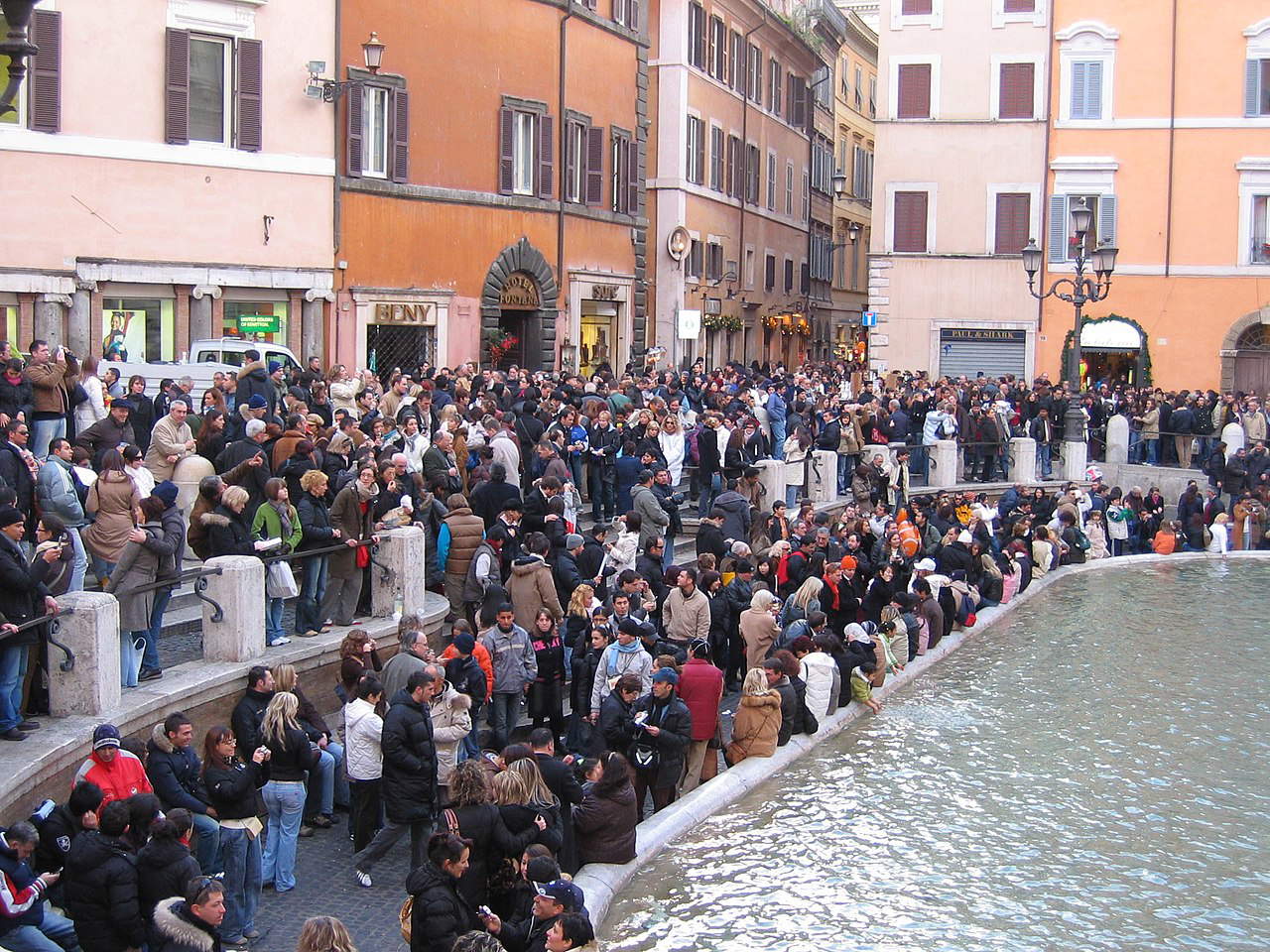
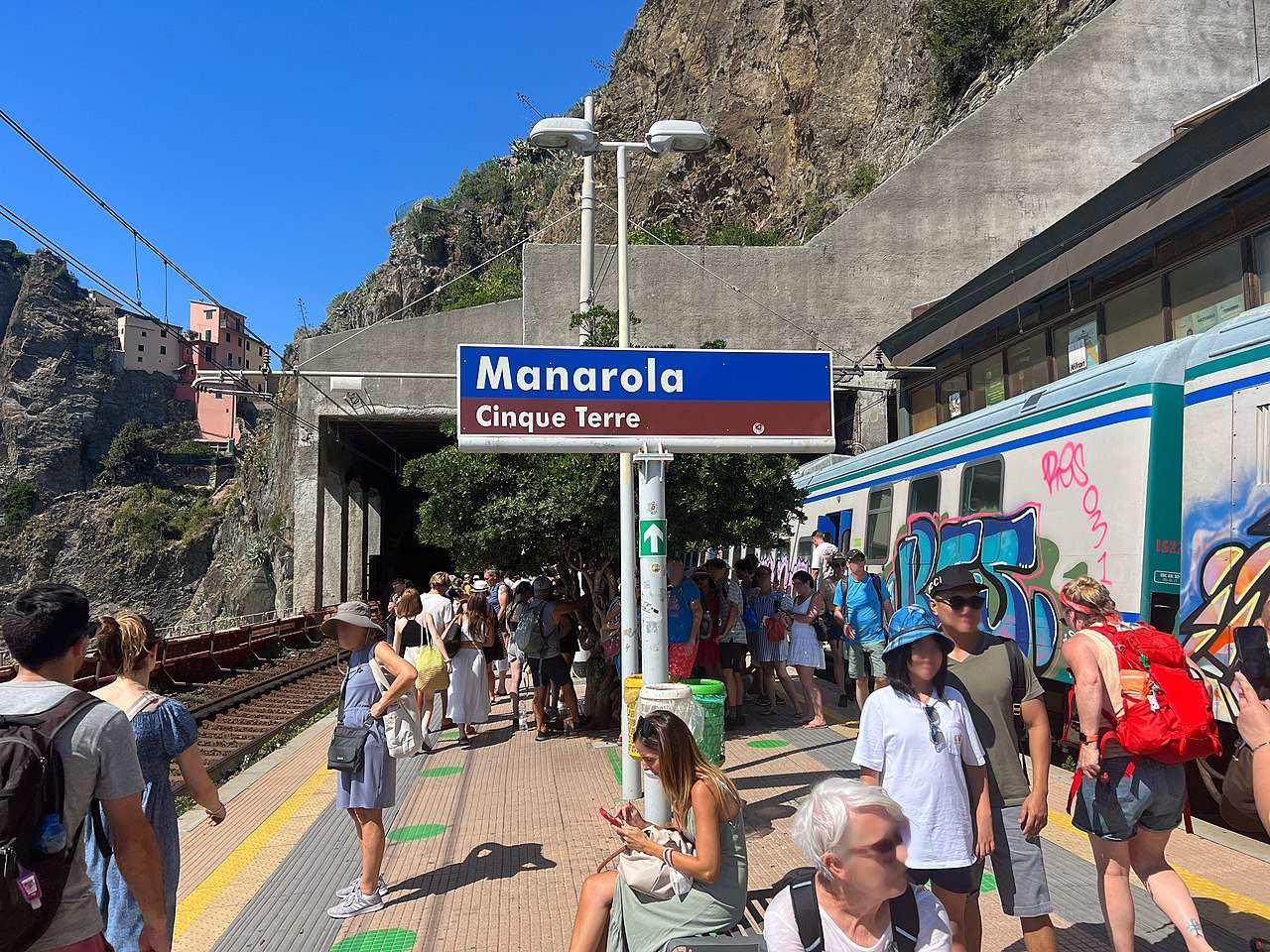
The problem of overtourism was felt even before the pandemic, and Finestre Sull’Arte in recent months had tried to hear what some titled players in the world of tourism were proposing in this regard. One of the top experts in the field such as Antonio Preiti on the measure of overtourism in Venice had explained how in his opinion a “formula was needed that nurtures desire for appreciation of the city and modulates the entrance fee around the desire for that appreciation: the more he or she ’appreciates’ the city by taking advantage of museums or staying in hotels, for example, the less this person should be ’taxed’ for entering the lagoon.” A ticket then, in its assessments, that distinguishes between person and person, a fee charged flexibly according to each person’s behavior in the city. “I would establish criteria not related to income,” he explained, “but to the tourist dimension; the economic criterion is the most disliked. We would need criteria more related to tourism: those who do not sleep and see museums and visit Venice only as an entertainment experience, a ’selfie’ visit on the Rialto bridge, just to make a point, can also pay an entrance fee.” .
Paola Migliosi, Florentine and Italian president of Confguide explained to us that “we need to deseasonalize, dilute and move it to less traveled destinations as well. We need major events such as large exhibitions to attract new audiences, I am thinking for example of what the Uffizi and Palazzo Strozzi in Florence are doing. More value should be given to a contemporary art museum like the Pecci in Prato and others like it. Because tourism will otherwise suffocate art cities. We should talk about beauty, not eating.”
On the same wavelength was the Europe Director of UNWTO (World Tourism Organization), the UN agency for tourism, Alessandra Priante, who spoke of the need for planning and flow management through collaboration with these web giants: “It is important to sit down at a table with these big international players of online bookings, and after thanking them for the development of the territory they have generated (because they are very good at territorial marketing) we ask them to share with us rules and forms of contribution to invest a part of the income they have in series of things for our tourist destinations.” And for art cities, "event drives are very important because they allow you to bring extra people. People don’t travel to see a museum but to eat and drink well and do interesting things. We are under no illusions about the rest. For culture you have to find ways to be enjoyed more efficiently: no queues, facilitation and other collateral. Think more about the collateral than the object: the object is there and doesn’t even need to be promoted. People travel to art cities because they are beautiful and not because the individual museum is there."
And with respect to ’hit and run’ tourism and the quest for the much-vaunted “quality” tourism, Th Resotrs patron Graziano Debellini told us that “Quality Tourism cannot coincide with tourism of the rich. You can have a 70-meter boat but have a sad experience. Among 32 thousand Italian hotels, we have 28 thousand under 30 rooms, so we have to imagine that so many are run by families. There are so many families who do it, I see it in Trentino, in an extraordinary way and they give you a great experience because there is an enhancement of the concept of hospitality and an attention to detail: they have one or 2 stars but they give you a 12-star ”product“! So the quality, the positive feedback does not depend on wealth, spending capacity or quantity of services that can be delivered. It depends on people. This is quality. Quality is related to the human depth of those who welcome.”
Discomfort is common, throughout Italy. Writer Maurizio Maggiani charged how the Cinque Terre (which has a total of 3,000 inhabitants compared to the 3.3 million tourists a year who flock there) “have been treated like Disneyland. Don’t be surprised by the siege of tourists. Since it is Easter and they say there is redemption only after atonement, I think for the Cinque Terre this should mean giving up some of the inordinate enrichment accumulated over the years.” And the mayor of Riomaggiore thinks in the same way by proposing a closed number of entrances at certain times of the year even though he sees the mayor of Vernazza and the president of the Liguria Region Giovanni Toti opposed. The problem is a serious one because this desire to put apartment income to tourists rather than to a family is causing the rental market to explode with college students and families having to deal with sky-high figures or-in the worst case scenario-not finding housing to rent.
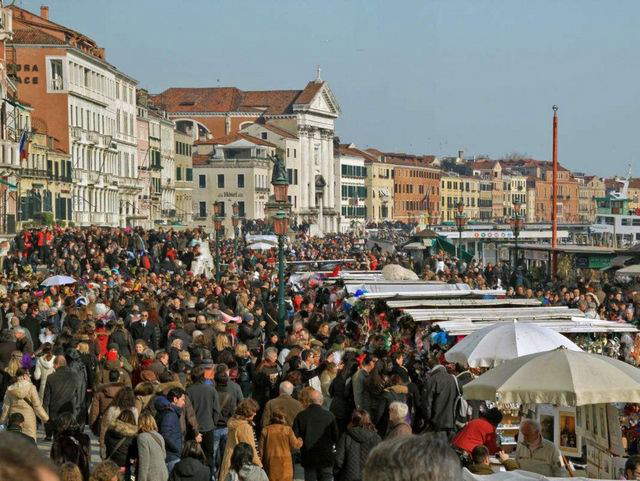

But the issue is rampant. In Verona, for example, a city of 255 thousand inhabitants, compared to 66 hotels we find 4 thousand apartments that are offered in the various web platforms specially web pwe be rented a few nights for those who want to go to see the balcony of Romeo and Juliet. Same thing on Lake Garda where Federalberghi complains that often these rental activities “evade the regulations in force on tourism” referring, for example, to the tourist tax. Not to mention the competition on their part considered “unfair” since an accommodation facility has regulatory obligations on installations, safety, hygiene, fire prevention, and whatnot while those who rent their grandmother’s house to foreign tourists have not had to incur the least comparable expenses. If we then think of homeowners who come from eviction experiences where even after two years they still cannot recover the property, it becomes clear that those with homes are jumping on the many tourists for a few days willing to spend even a lot, rather than taking a family with contracts for long years.
In Bologna a few months ago, even the Magnificent Rector of the Alma Mater Giovanni Molari made himself heard: “Houses that can’t be found, now no more B&Bs. The parents of the children are desperate. We need a national law and to intervene on ambiguous and illegal situations” There are in fact 45,000 off-site students enrolled at the University of Bologna (non-residents in Emilia Romagna. Half of the student body) and beds in the student halls of residence barely 1,600. There is nothing more to say. Same music same sea also in the south: in Ostuni, the nineteenth-century area of the White City has been fighting for months against garbage that has grown up and been left abandoned wherever it happens seeing the cost of the garbage tax to residents rise by 100 percent in one year.
In Naples, tourism is doing well, even too well: an increase in the tourist tax has been announced to meet the expenses arising from tourism. “The Easter weekend was a great success an attendance that went beyond even our forecasts,” Mayor Manfredi commented to La Repubblica, “We have a sell-out until June, so by now it’s a traced path. Then we have the whole issue of a regulation of vacation homes, bed and breakfasts, flows in the streets, we have to get used to a very high and also continuous tourism over time and therefore it is necessary a management plan that we will gradually put in place to improve the reception in the city” but “this great flow of tourism,” he explained, “brings a lot of resources into the city’s economy and this is something we are pleased about because it creates jobs, it creates opportunities for so many, but then relapses on the coffers of the municipality are not there because we do not have, except on the tourism tax, anything else that falls while the costs of services grow. So this is also an issue that we have to progressively address to make sure that we have the resources to deal with all this increase in services that are essential. Hence the idea of increasing the tourist tax by 50 cents for tourists.”
But a regulatory way has to be found, hence the appeal last April 6 by the mayors of Bologna, Bergamo, Florence, Lodi, Milan, Naples, Padua, Parma, Rome, Turin, and Verona to the government for a law that would allow them to stop the proliferation of houses used as B&Bs and the like, following the publication of the “High Tension Housing” study on the depopulation of urban centers to the benefit of tourism income. Mayor Matteo Lepore dryly classified “the socially unsustainable short-term rental market.” Filippo Celata, a full professor at Sapienza University in Rome, calculated that the ratio of whole houses on the platform to total residential housing in the city’s most touristy areas is almost one to three. “We need a national law to put a cap on micro rentals” trying to hit the rent of those who make disproportionate use of them and certainly not the small landlord who rents out his grandfather’s house rounding up his salary, affirming the “one home one host” principle. There is a need to put a cap on entrepreneurial entities managing dozens of housing units. “Today,” the mayor of Florence told Repubblica, “it is difficult to find people who rent on Airbnb to make ends meet. The phenomenon was born this way, people rented out their grandmother’s old house. Now there are whole blocks on online short-lease platforms. And there are agencies and funds that rent them out. It is a phenomenon that has drugged the real estate market across the country, making it effectively impossible for a young couple or a family with an average income to buy an apartment in a historic center, in Florence as in Rome or Milan.” It is worth noting that there are more than 1,100 Airbnb accommodations in the city of Dante in the hands of 20 companies, and the top three in the ranking control 169, 109 and 102, respectively, almost all of them in the historic center. This is noted by the website Inside Airbnb, from which it also shows that only 33 percent of the 11,000 hosts put a single apartment on the market on the banks of the Arno.
So also the Councillor for Tourism of Roma Capitale Alessandro Onorato: “It is not possible that with a click today anyone can open any extra-hotel accommodation, the Far West is no longer tolerable. We need to grant municipalities the ability to regulate the phenomenon of extra-hotel accommodation, establishing mechanisms to limit new openings. The second to establish the obligation on the online portals Airbnb, Booking, Expedia, and all search engines, to publish only the ads of facilities with the identification code issued by the municipality. If this is not done soon, the historic center is destined to die, to become unlivable for citizens and a low-level experience for tourists.”
In fact, local governments and regions have no regulatory tools to prevent business activities for individuals or economic entities as it is not within their power. Under the division of labor enshrined in the Constitution as amended in 2021 under Title V, tourism is yes a matter of regional competence but free competition is in the hands of the state. And restricting someone from opening any business is an economic and competition matter (entrepreneurial activity is defined by the Civil Code) that is therefore up to Parliament and the government to regulate. However, what Rome is proposing has already been done by the Region of Tuscany with Regional Law 89 of 2016 where a regulatory system was found that was balanced between the understandable income-rounding activity of the pensioner or individual who inherited his grandfather’s house and those who instead make it a real professional activity by literally emptying entire buildings in the center to turn them into standardized apartments for tourists. Basically blocks of flats that are hotels with the only difference being that there is no reception and no staff. Regional Law 86 of Tuscany therefore, “to distinguish those who rent out a part of their homes from those who, instead, make renting out one or more houses to tourists a real business,” explained Stefano Ciuoffo, tourism councilor from 2015 to 2020, in 2019, “we had identified in the Consolidated Text (art. 70 and 71 of Regional Law 86 of 2016) a formula beyond which the implicit recognition of entrepreneurial activity should be triggered and thus the tax and regulatory regime to which businesses are subject, on a par with classic accommodation facilities. Beyond the criterion found (80 total annual contracts for those who rent three properties), which may or may not have been considered congruous, those who exceeded this threshold were subject to the obligations of an accommodation facility. The two articles, however, were challenged by the government since, according to the Constitutional Court, they invaded a matter of exclusive state competence, namely competition and entrepreneurial activity. State that in 2017 intervened (Art. 4 dlg 50) indicating only in the Ministry of Economy and Finance the subject that can indicate who performs or not this activity in an entrepreneurial form. Since then, despite repeated and formal requests from all regions, the MEF has not intervened in this matter. Intervention that, given the size of the phenomenon, would now be urgent and a priority.”
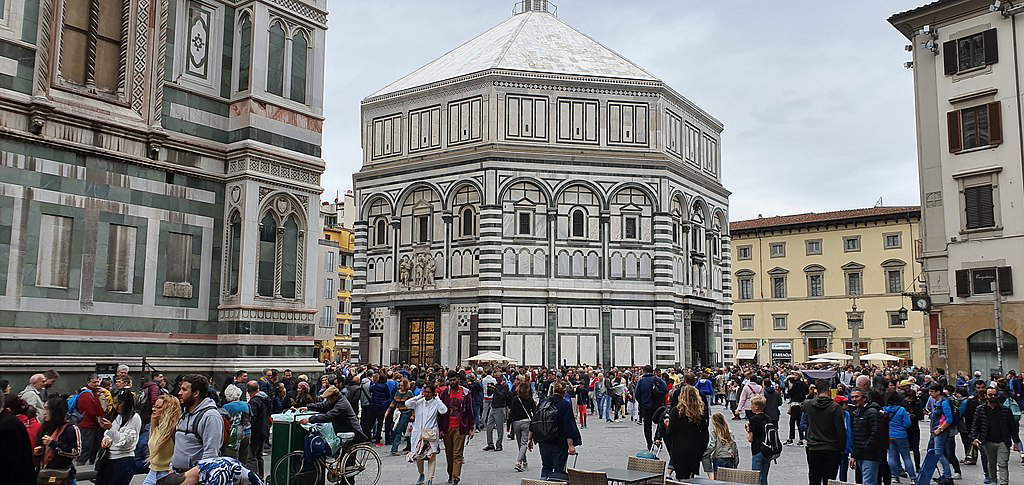
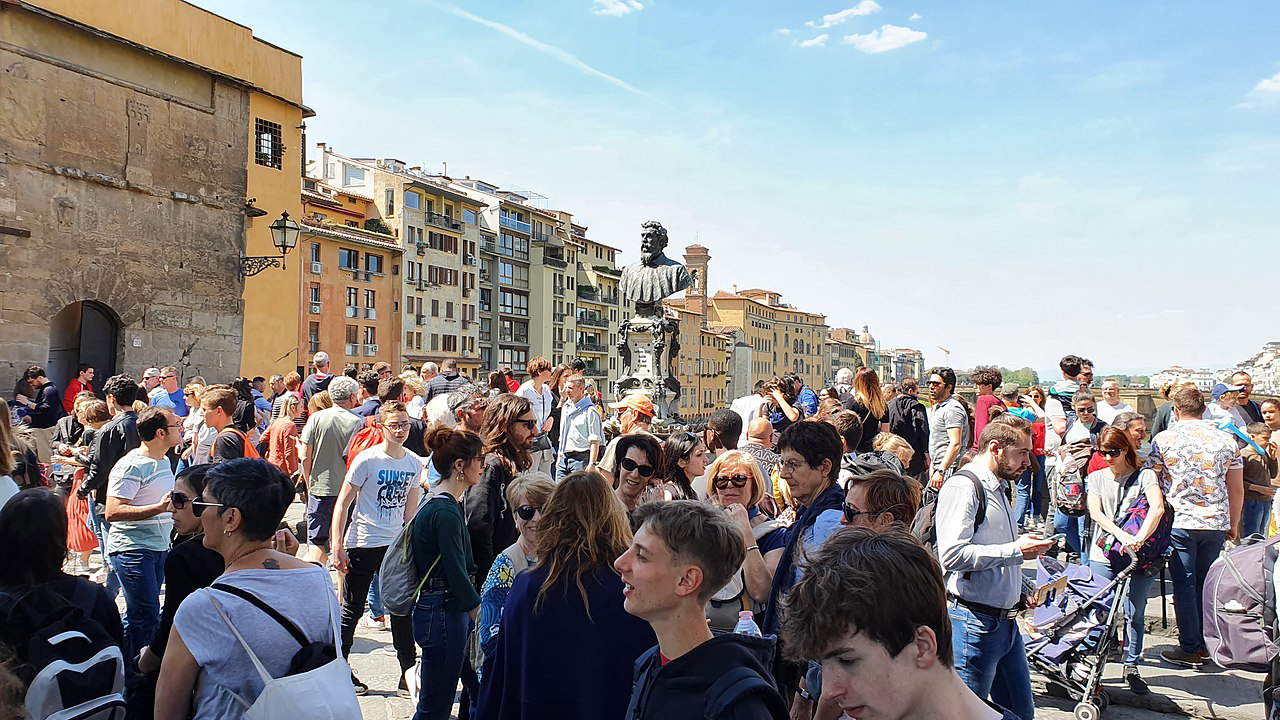
The obligation to register on the Region’s portal in order to rent has come into effect, but everything else from Rome is silent. He had tried in 2022 the Draghi government’s Minister of Tourism Garavaglia, who basically traced the Tuscan law with the combination of the number of nights and the number of properties owned identified by a code, had presented a Bill that, however, did not go through as there were early elections and everything came to a halt. Garavaglia also, in 2021, two years after the entry into force of Tuscany, had initiated the database that maps accommodation facilities with an identification code to counter abuse and irregularities, signing the appropriate implementing decree.
Now the cards are in the hands of Minister Santanchè, who has spoken out sharply: “It is a global problem, people moving are increasing exponentially and the places to visit in Europe are more or less always the same. I think of Rome, Florence, Venice. I don’t believe in closed numbers for access to historic centers while on the issue of short rentals we need new rules. The far west has to end. The few existing rules are not enforced. We need real rules and we are waiting for what Europe will elaborate, taking into account, however, some peculiarities such as small villages where there are no hotels and short renting in a house is the only solution. Also, for us the house is sacred and if a family decides to rent a room it is not right to prevent it. Different discussion, however, if you rent with this formula 20 apartments,” says the minister for whom “meanwhile we need to understand how many short rentals there are and where they are. We have to make a mapping because to date it does not exist. After we have a complete picture we will intervene.” So in fact he approves what the Tuscany Region has done with the registry where landlords have to be marked and given an identification code.
In Italy, however, there are those who have put the closed number in black and white, complete with a final figure: The autonomous province of Bolzano, in fact, with a 13-page resolution (Italian/German) has set the annual ceiling at 34 million overnight stays, “that is, the number of tourist presences that we would record in 2019,” explains Arnold Schuler the province’s tourism councillor. “We realized,” he says, “that our territory, our community and our resources, water, land, energy, had reached a level of exploitation that should not and could no longer be exceeded. So, with a resolution we decided to introduce a cap on overnight stays.” And that was already the case for access to the Alpe di Siusi, Europe’s largest plateau part of the Dolomites-where the only road is closed to private traffic from 9 a.m. to 5 p.m., unless you have booked a stay in one of the not many facilities there, and then you can only get there by gondola or shuttle bus.
As an epitaph, the stern observation of Cristina Acidini, former director of the Polo Museale Fiorentino and current director Accademia delle Arti del Disegno (the institution heir to the oldest art academy founded by a public power in the world, 1563, which in 1784 changed its name to Accademia di belle arti di Firenze. Its members have included Michelangelo Buonarroti, Benvenuto Cellini, Andrea Palladio, Galileo Galilei, Lorenzo Bartolini, all the way up to Pablo Picasso), who pointed out in La Nazione that there is “no longer the concept of the educational journey, known more as an unconscious passage between treasures that one must see but perhaps does not even understand,” and, we would add, to occupy the time before and after a typical local meal. Just as Alessandra Priante said: people travel to go eat. Enjoy.
Warning: the translation into English of the original Italian article was created using automatic tools. We undertake to review all articles, but we do not guarantee the total absence of inaccuracies in the translation due to the program. You can find the original by clicking on the ITA button. If you find any mistake,please contact us.




























